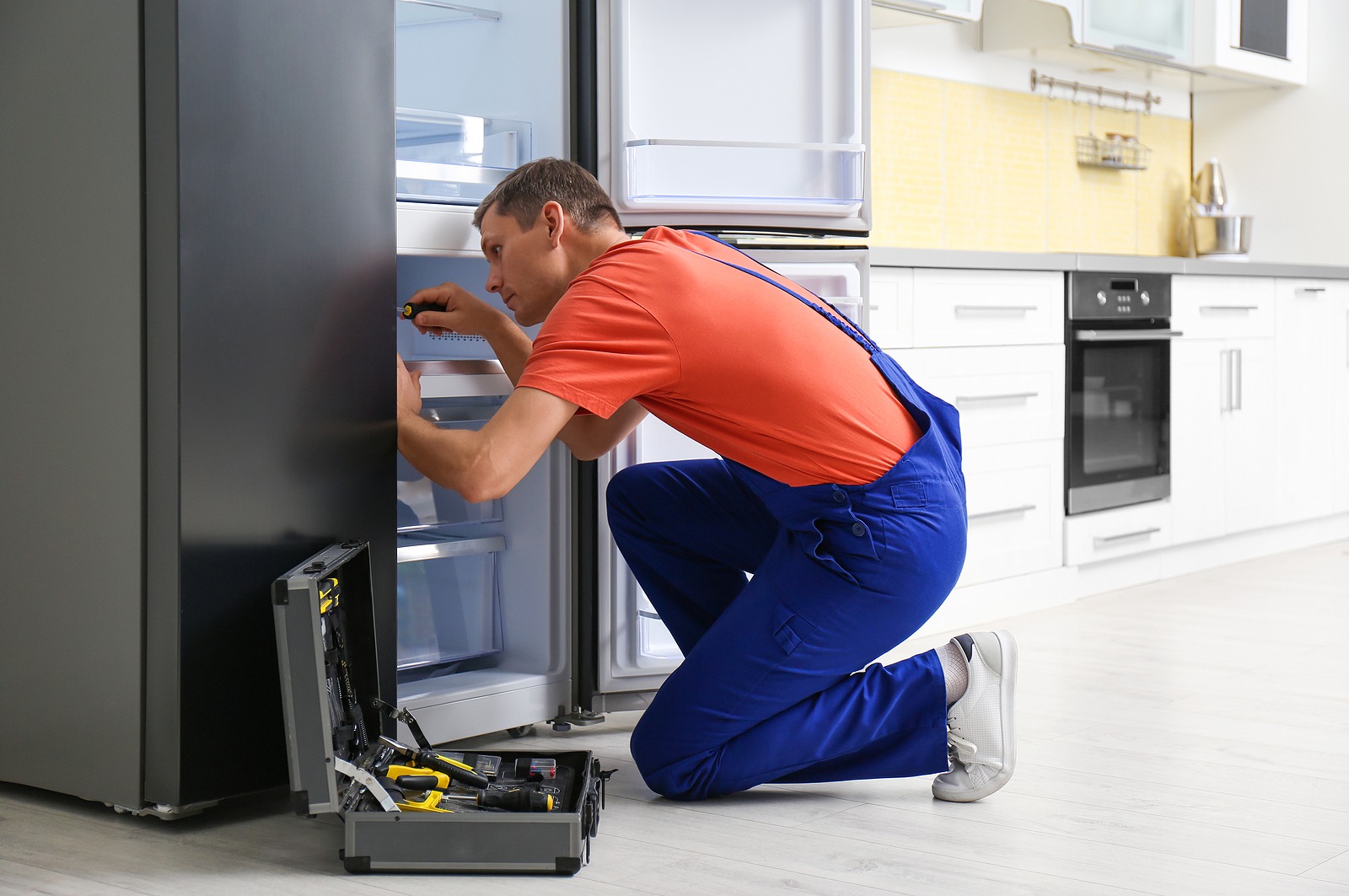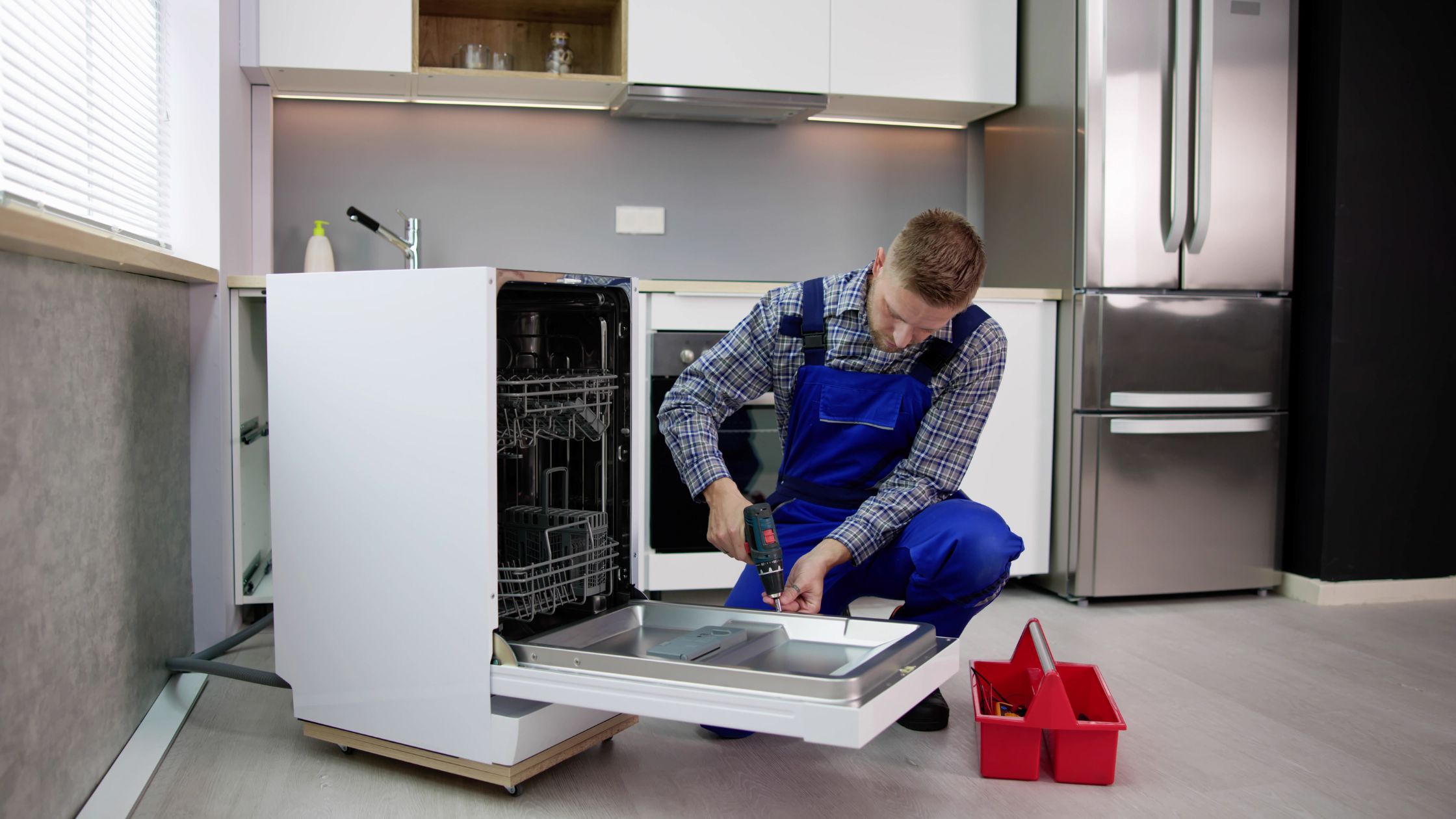Keep Your Dryer Running Longer – Kenmore Dryer Repair Oro Valley Dependable Refrigeration & Appliance Repair Service
Keep Your Dryer Running Longer – Kenmore Dryer Repair Oro Valley Dependable Refrigeration & Appliance Repair Service
Blog Article
The Ultimate Guide to Comprehending Appliance Repair Work at Home
When your fridge quits cooling down or your stove rejects to warmth, it can really feel frustrating. Recognizing device repair at home can save you time and money. You'll learn to recognize symptoms, make use of vital tools, and comply with a systematic troubleshooting process. Yet prior to you start, there are crucial safety and security preventative measures you need to consider. What are the most common problems, and just how can you repair them? Let's explore the essentials.
Usual Appliance Problems and Their Signs and symptoms
When your devices start acting up, it's vital to recognize the indicators early on. Neglecting them can bring about larger issues and pricey repairs. If your fridge isn't cooling effectively, you might discover warm areas or condensation creating. This could indicate a stopping working compressor or an obstructed vent.Your dishwashing machine might show troubles with dirty meals or unusual noises throughout cycles. If you listen to grinding or clanking, it's time to investigate.A cleaning maker that will not spin or drain can leave you with soaked washing, suggesting a clogged drainpipe or a malfunctioning pump.Lastly, if your oven's temperature seems off or it takes for life to preheat, you may be handling a defective thermostat. By remaining alert to these signs, you can address problems prior to they escalate right into significant repairs.
Crucial Devices for Device Repair Work
When you're dealing with device repairs in your home, having the right devices is necessary. Standard hand tools like screwdrivers and pliers will assist you dismantle and repair different devices, while electric screening gadgets guarantee you're working securely with electrical wiring. Allow's look at what you need to get started on your fixing trip.
Fundamental Hand Tools
Having the right tools is important for effective home appliance repair service in the house. Start with a dependable screwdriver collection, consisting of both flathead and Phillips kinds, as screws are usual in home appliance setting up. Pliers are also important; they assist with gripping, turning, and reducing cables or little parts. A set of needle-nose pliers can reach tight places conveniently. You'll need a good flexible wrench for tightening or loosening nuts and screws. An utility knife comes in handy for cutting through product packaging or insulation. Do not fail to remember a tough workbench or surface to safely organize your tools and components. With these fundamental hand tools, you'll be well-prepared to deal with most home appliance repairs that come your means.
Electric Testing Devices
Alongside standard hand devices, electrical screening tools play a crucial function in home appliance repair work. These tools aid you detect electrical issues and guarantee appliances function securely. A multimeter is important; it determines voltage, present, and resistance, enabling you to determine troubles quickly. A non-contact voltage tester is an additional must-have, letting you detect real-time cords without making direct contact, improving your safety. Clamp meters are fantastic for determining existing flow in wires without detaching them, conserving you time and initiative. In addition, circuit testers can quickly examine if electrical outlets are functioning correctly. By utilizing these tools, you'll streamline your troubleshooting process and enhance your repair work abilities, making appliance maintenance a great deal much easier.
Step-by-Step Overview to Diagnosing Appliance Issues
When your home appliance acts up, it can be irritating, but identifying the problem does not have to be frustrating. You'll learn to determine usual issues and use efficient fixing methods. Let's go through the steps to obtain your home appliance back in working order.
Common Device Troubles

Repairing Techniques Clarified

Repairing Significant Kitchen Area Appliances: A Closer Look
Have you ever before wondered how to take on typical problems with your kitchen area appliances? Repairing significant kitchen appliances like refrigerators, stoves, and dishwashers can be easier than you believe. Start by identifying the trouble-- whether it's a refrigerator not cooling down or an oven that won't heat up. Commonly, a straightforward reset or examining the power source can address the issue.For refrigerators, clean the condenser coils and examine the door seals. If your stove's not home heating, examine the home heating element and thermostat. Dishwashing machines might simply need a clean filter or a reset to obtain them back at work. Always unplug the device before diving right into fixings to ensure your safety.Don' t neglect to get in touch with the user guidebook for specific fixing suggestions related to stove repair near me your design. With a little bit of patience and the right tools, you can confidently tackle appliance repair work and save cash at the same time!

Repairing Laundry Equipments: Tips and Techniques
When your washing home appliances start breaking down, it can really feel frustrating, but fixing them does not need to be a hassle. Begin by inspecting the power supply. Validate the appliance is plugged in and the electrical outlet is operating. Next, evaluate the door or cover button; a defective button can protect against the device from operating.For washers, if it's not rotating, look for unbalanced lots. Rearranging the clothes may fix the concern. If your clothes dryer isn't heating, clean the lint filter and examine the air vent for blockages.Listen for unusual noises; they can indicate an issue. If your home appliance is dripping, examine the tubes for cracks or loose connections. File any type of mistake codes shown on electronic displays, as they can lead you in recognizing the concern. Seek advice from the user handbook for specific fixing tips connected to your version.
Safety Preventative Measures to Take During Repairs
Before you begin any type of home appliance repair work, it's important to prioritize safety and security to stop mishaps or injuries. Initially, unplug the home appliance or switch off the breaker to ensure no power reaches it while you work. Usage insulated tools to reduce the danger of electrical shock. Wear safety goggles and handwear covers to protect yourself from sharp edges or debris (Fixes washers and dryers Oro valley Dependable Appliance Repair).Make certain your office is clean and well-lit, so you can see what you're doing. Maintain children and pets far from the area to avoid distractions and possible risks. If you're managing gas home appliances, be added cautious; check for leakages before proceeding.Take your time, and do not hurry with fixings. If you feel unclear about any type of step, it's much better to pause and research study than to presume. Following these safety measures will aid create a safer setting for your DIY device repair task
When to Call a Specialist for Help
How do you know if it's time to employ a professional for appliance repair services? If you have actually tried basic troubleshooting without success, it's a clear indication. For instance, if your device still will not begin or reveals unusual sounds after resetting it, don't be reluctant to look for expert help.When you observe leakages, smoke, or shedding smells, prioritize safety and call a pro promptly. These problems can result in more significant damage or position threats to your home.Also, if your home authorized appliance repair appliance is under service warranty, speaking to a specialist is frequently the most effective path. They can assure that repair services won't invalidate your service warranty, conserving you cash in the lengthy run.Finally, if you're not sure or uncomfortable with complicated fixings, it's a good idea to leave it to the specialists. Keep in mind, dealing with challenging issues without the right knowledge can result in expensive errors. Count on a professional when doubtful!
Often Asked Inquiries
How Can I Avoid Home Appliance Problems in the Future?
To avoid home appliance problems in the future, you need to do routine go to website upkeep, look for deterioration, tidy filters, and stay clear of overloading. Staying positive will certainly assist expand their lifespan and maintain them running smoothly.
What Are the Many Common Do It Yourself Home Appliance Repair Service Mistakes?
You may neglect safety preventative measures, avoid repairing steps, or make use of inaccurate devices when trying DIY device fixings. Rushing the procedure or overlooking producer standards can lead to more substantial issues and expensive blunders. Stay client and educated!
How Do I Know if a Component Demands Replacement?
You can tell if a component requires substitute by looking for unusual sounds, leakages, or inconsistent performance. If the home appliance battles to run correctly or reveals noticeable damage, it's likely time for a substitute.
Can I Make Use Of Generic Components for Appliance Fixes?
Yes, you can make use of generic parts for device repair services, but establish they work - Dependable Refrigeration & Appliance Repair Service Washing Machine Repair. Generic parts could save you money, but they can influence efficiency or long life, so evaluate your choices very carefully before making a decision
What Guarantees Cover Home Appliance Repair Works?
Many appliance warranties cover repairs for manufacturing issues, but they frequently omit damage from abuse. Check your service warranty terms thoroughly, as some may require utilizing licensed specialists and initial parts for coverage to continue to be valid.
Report this page